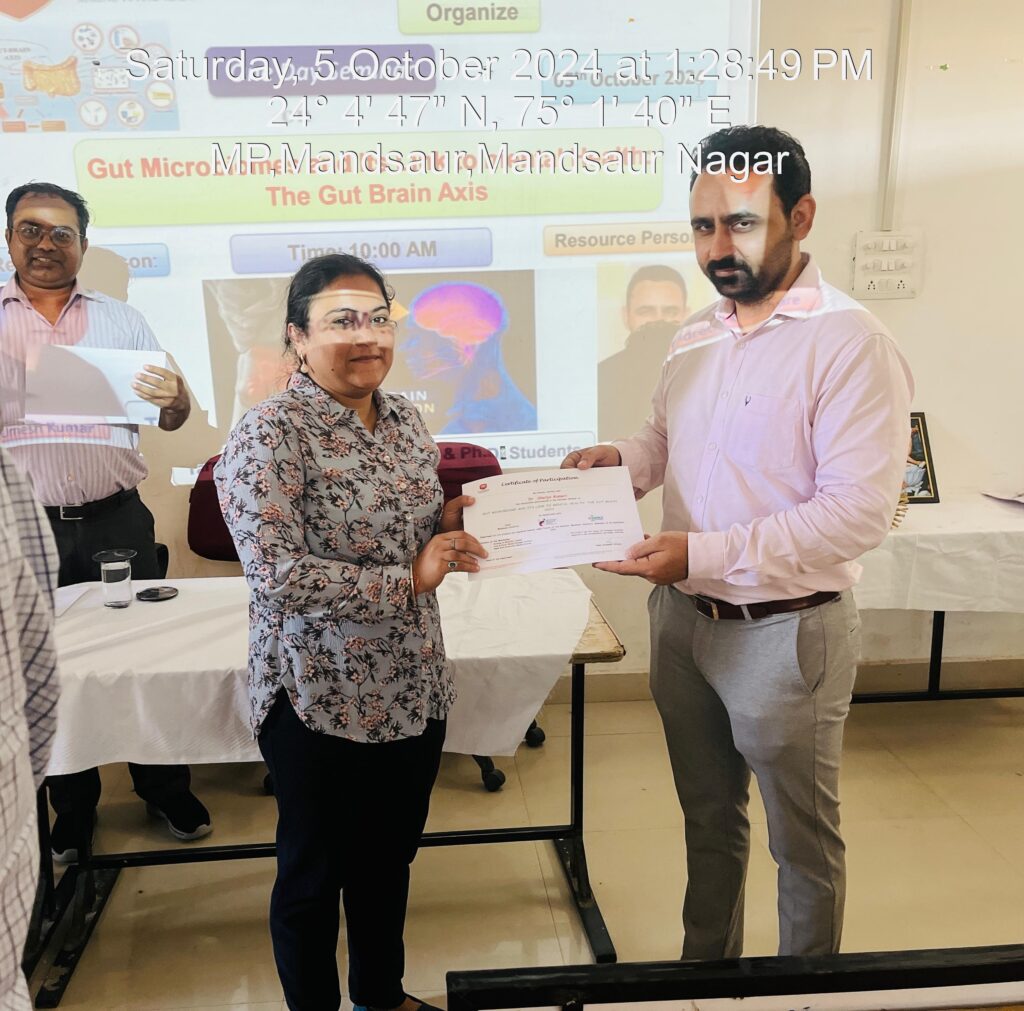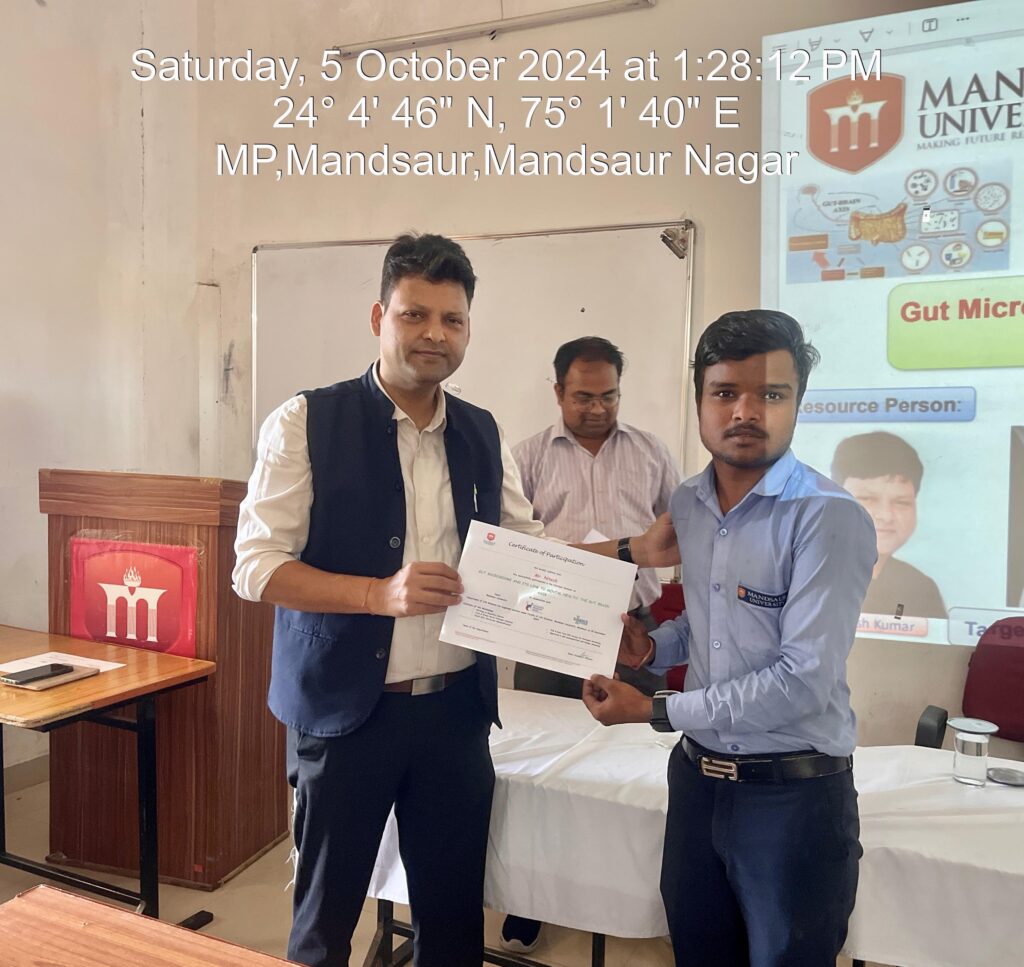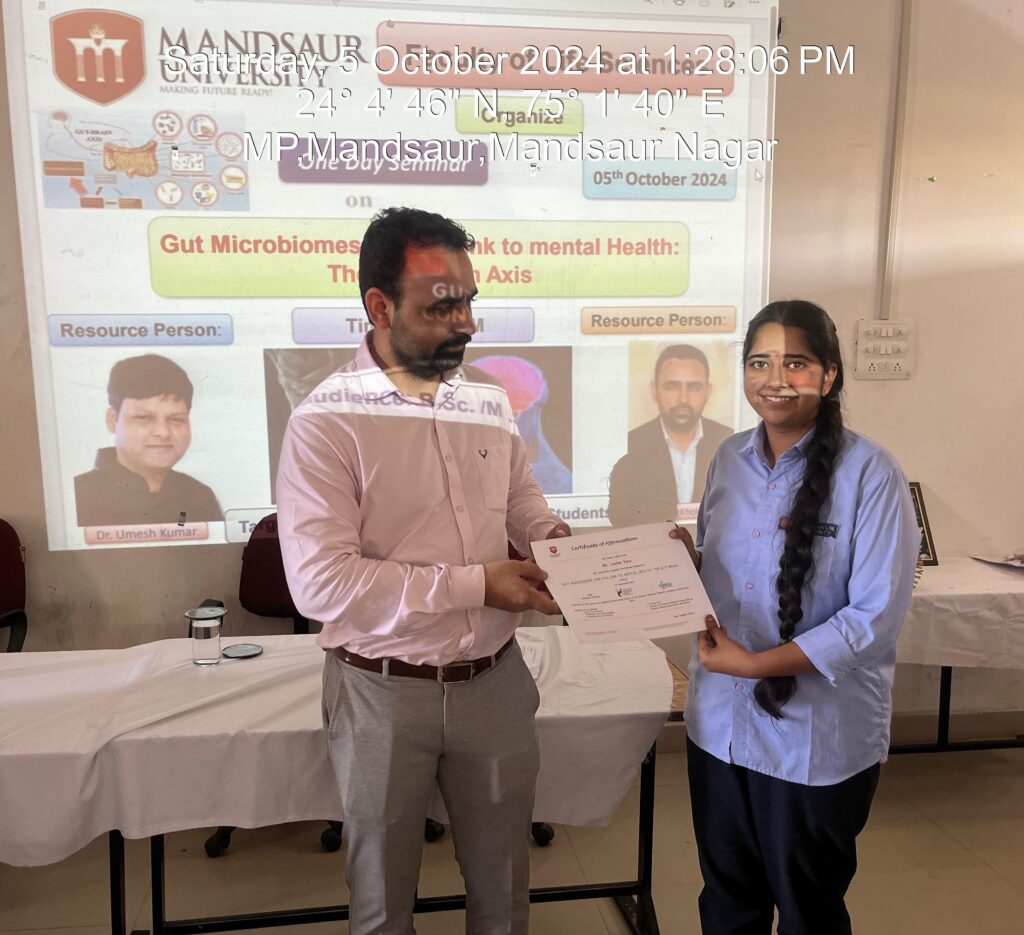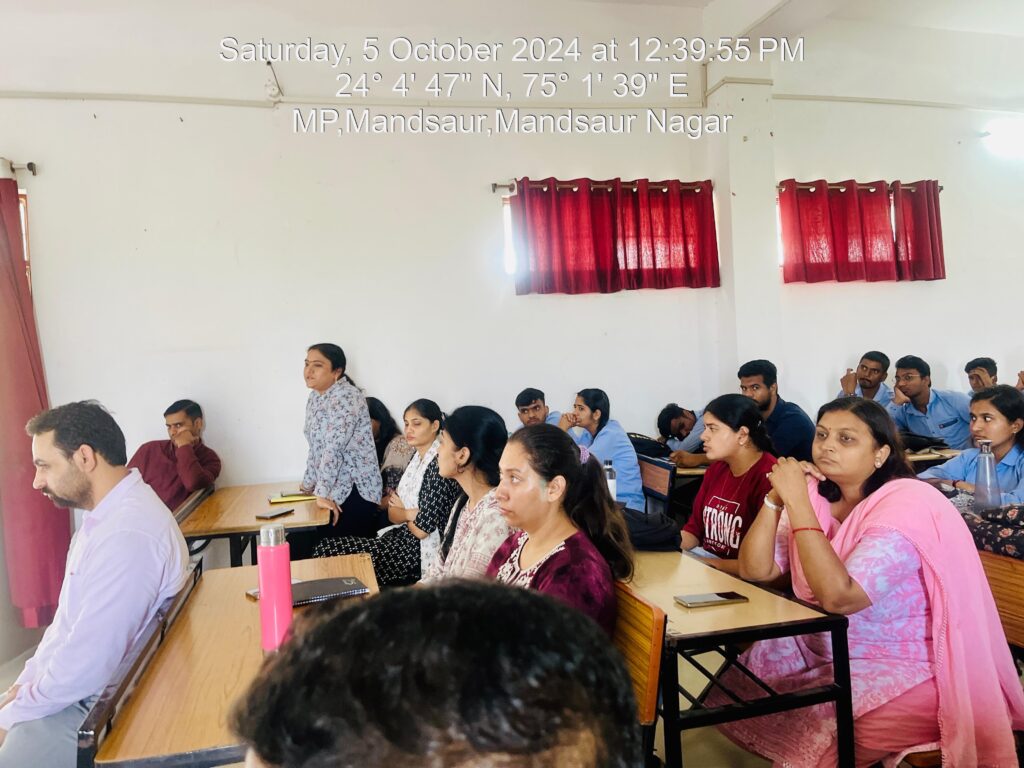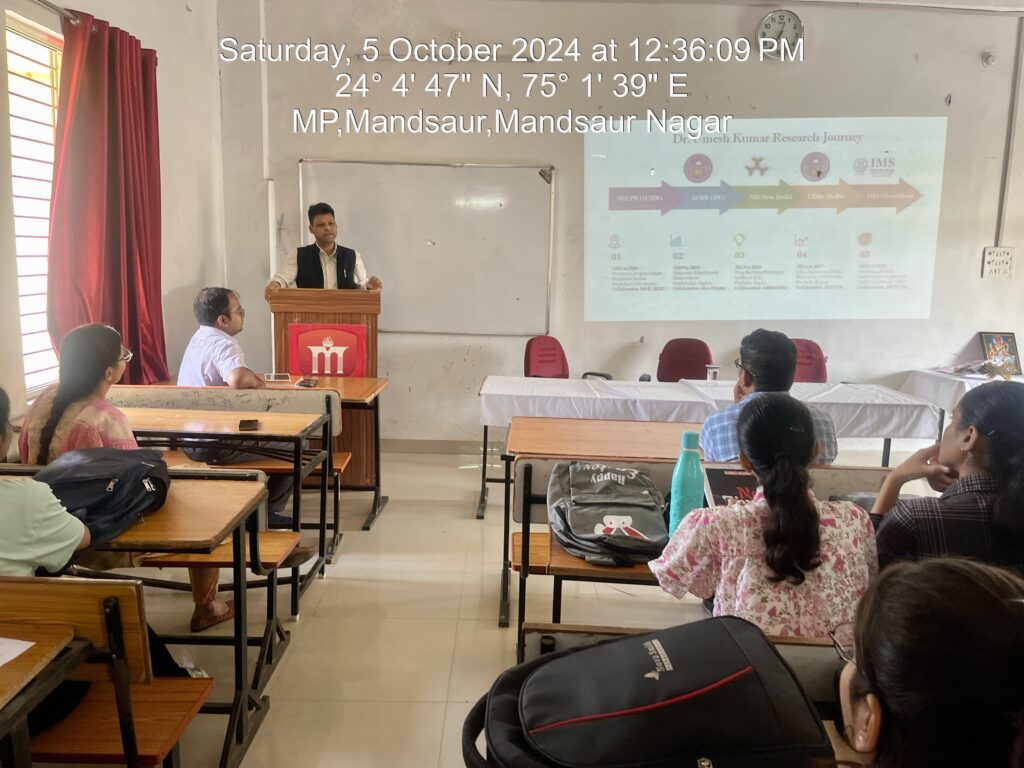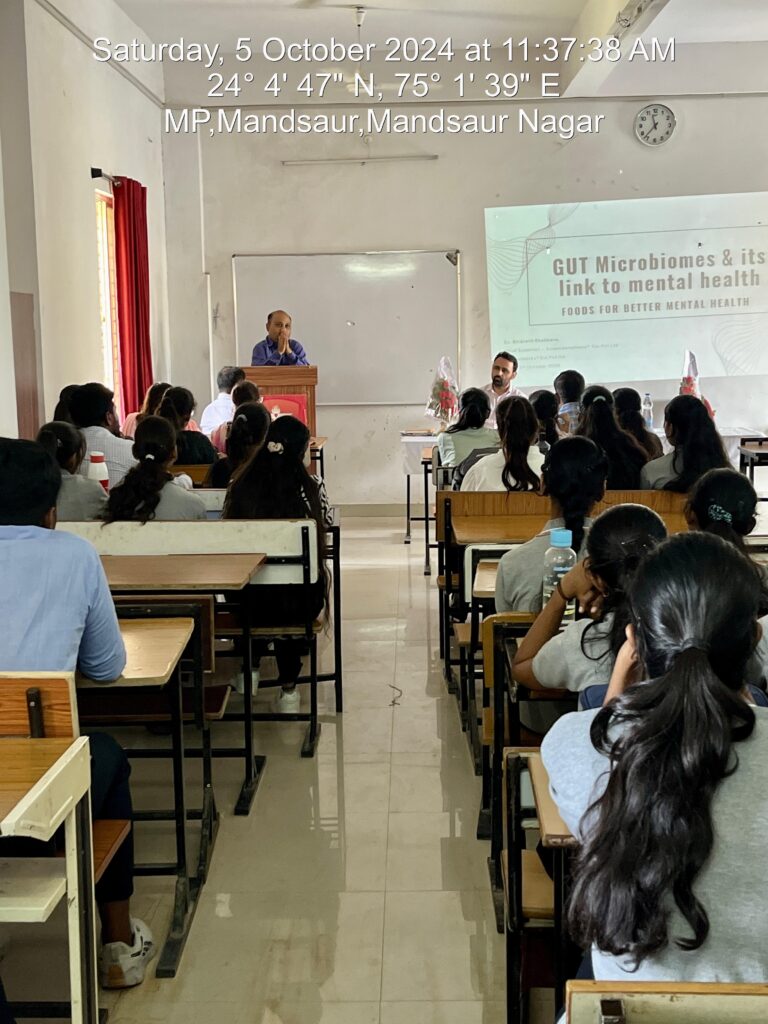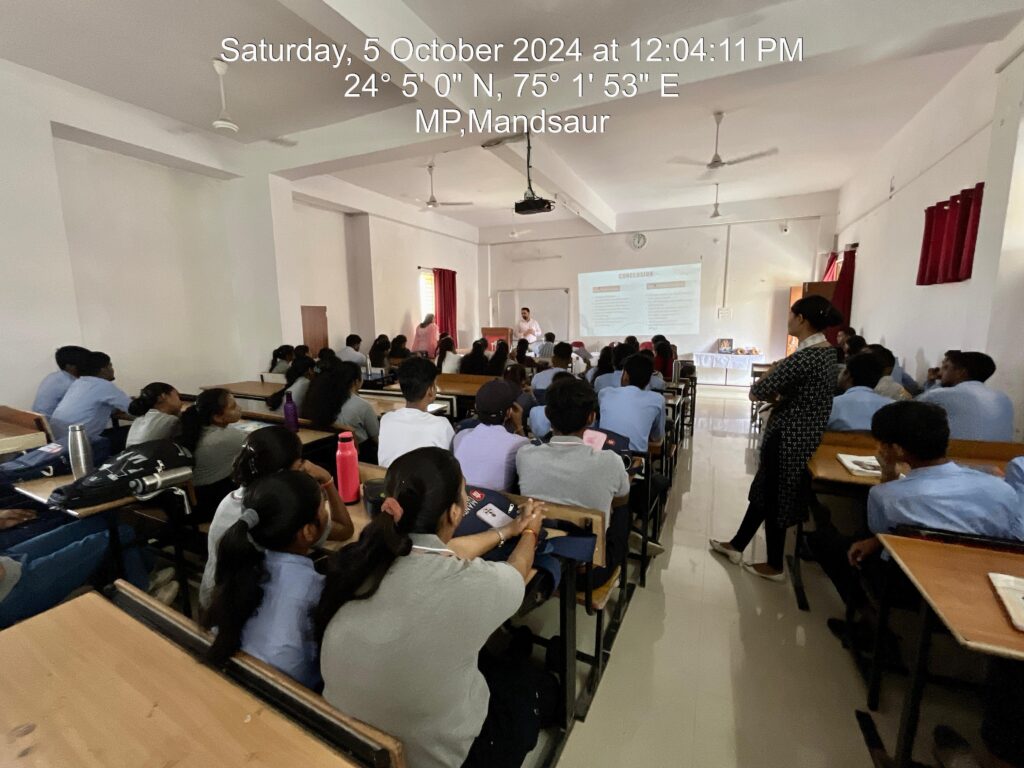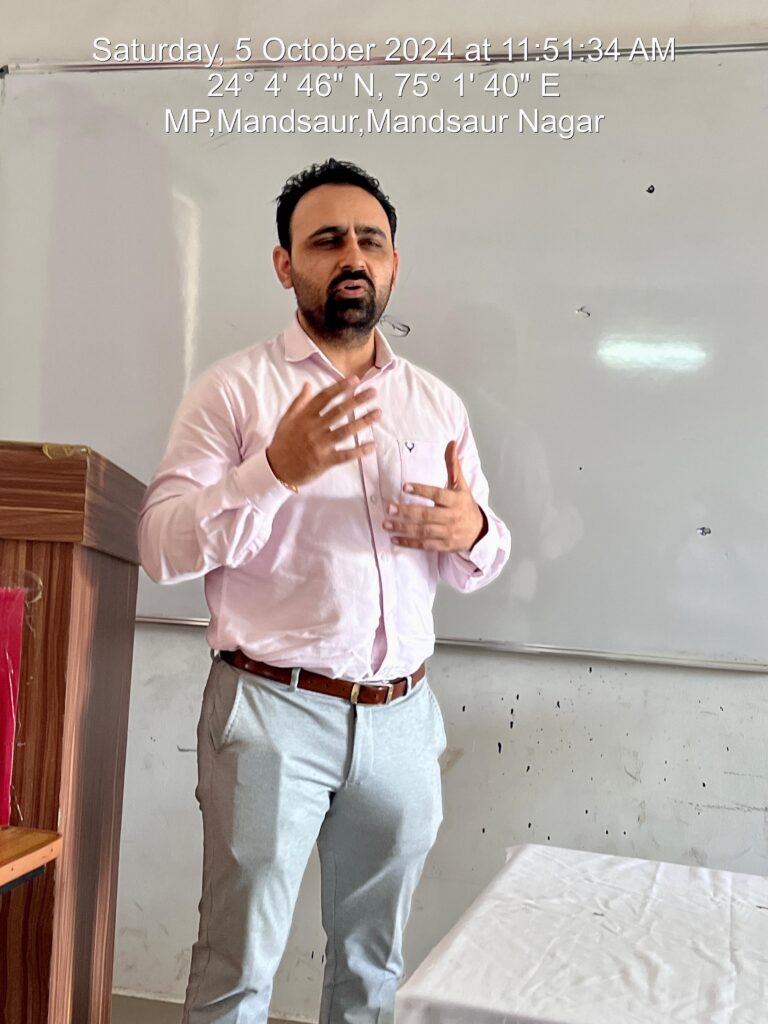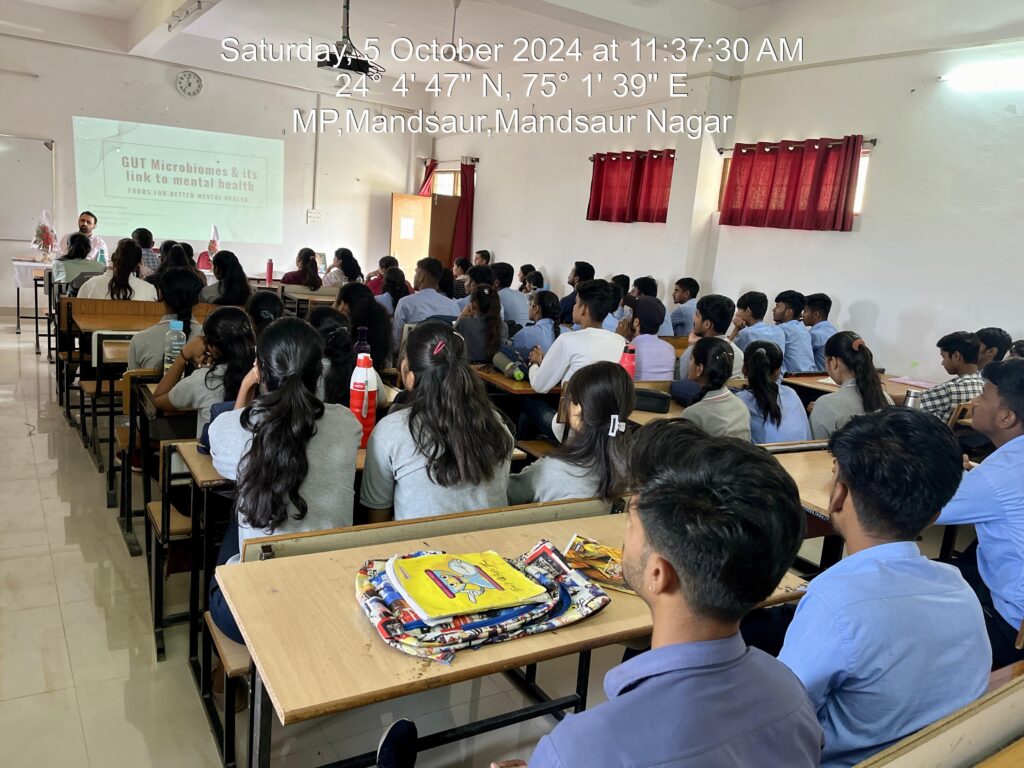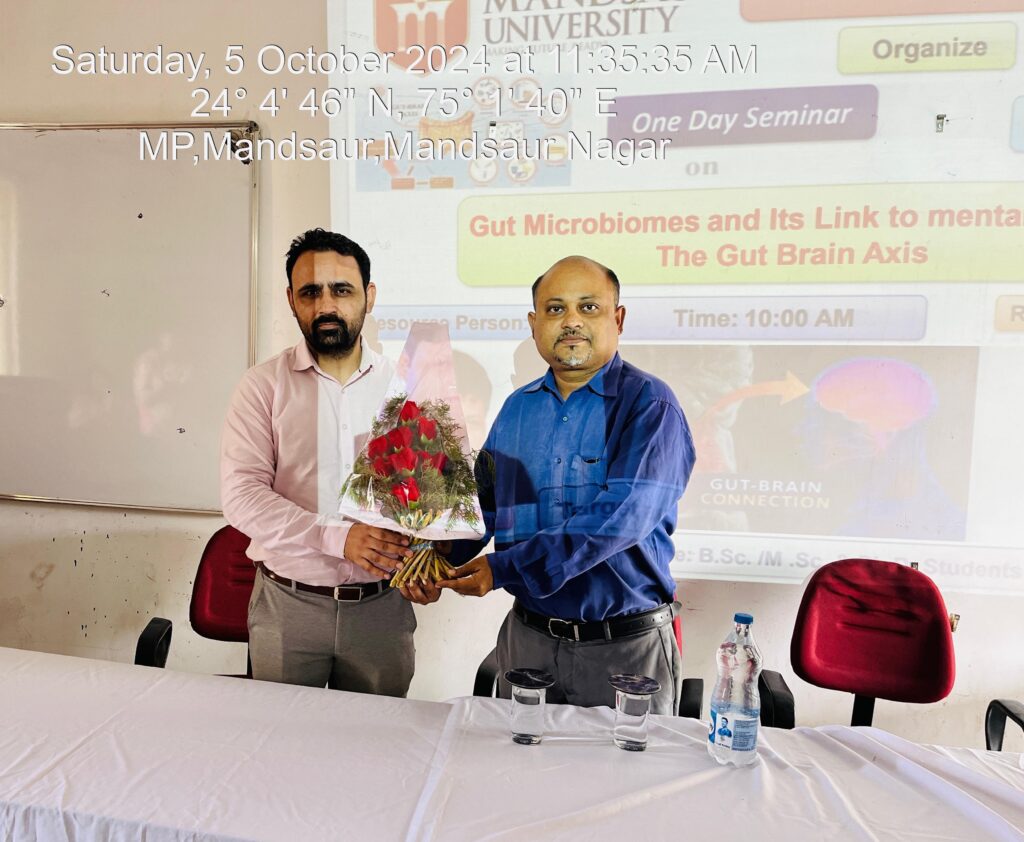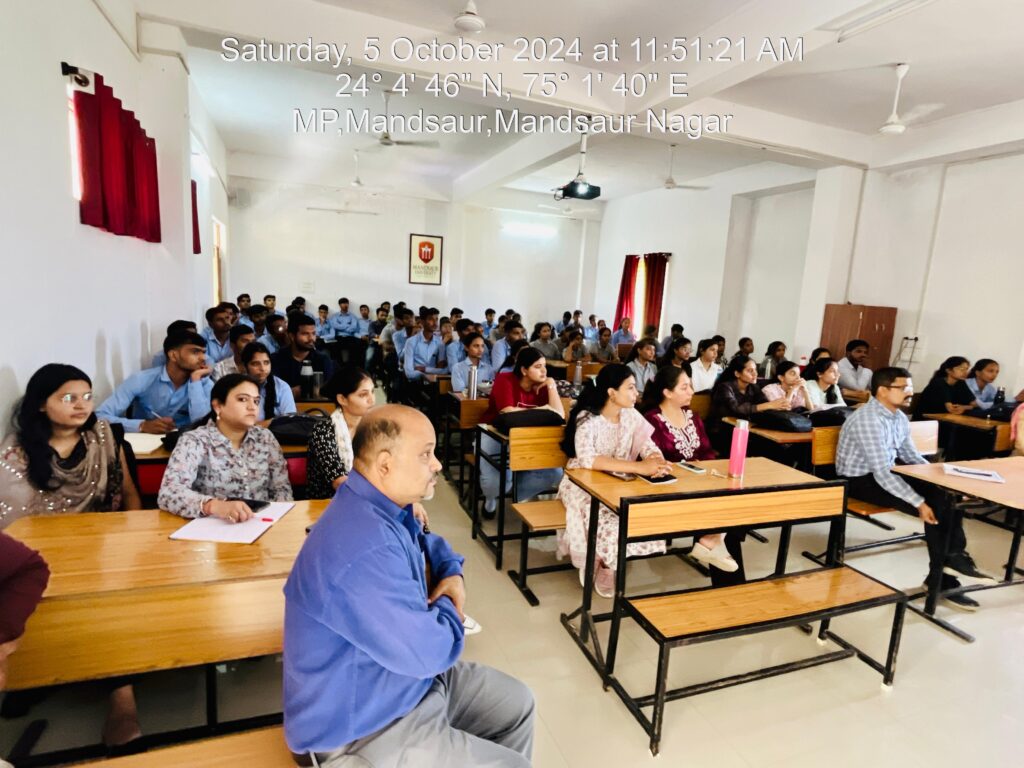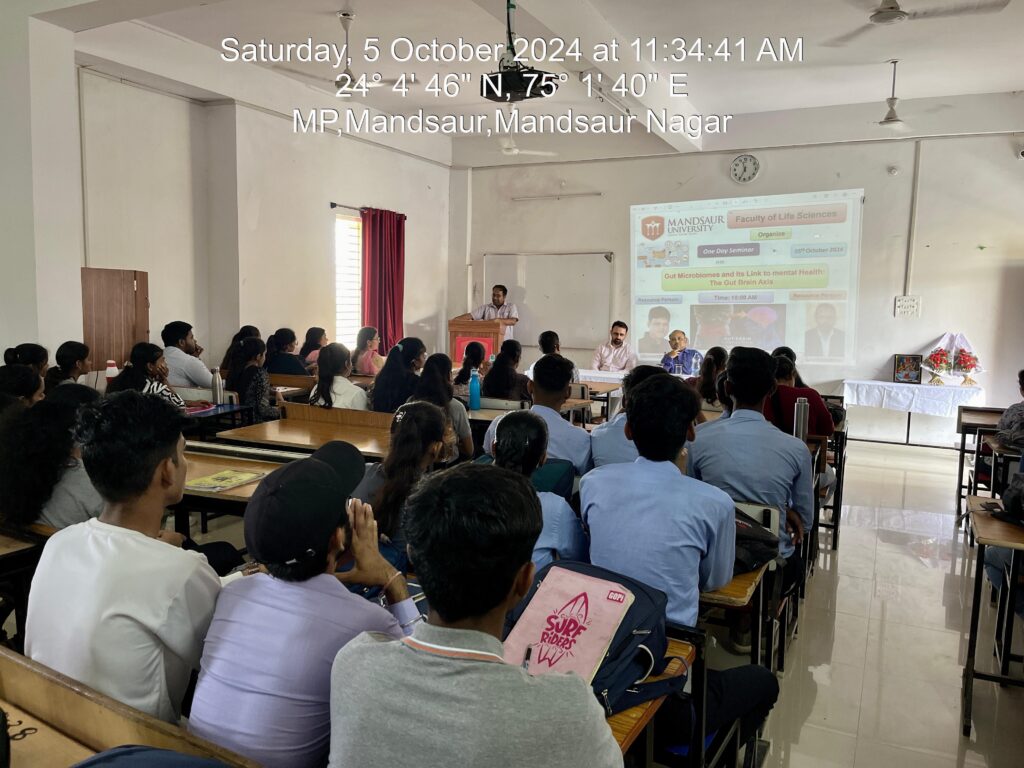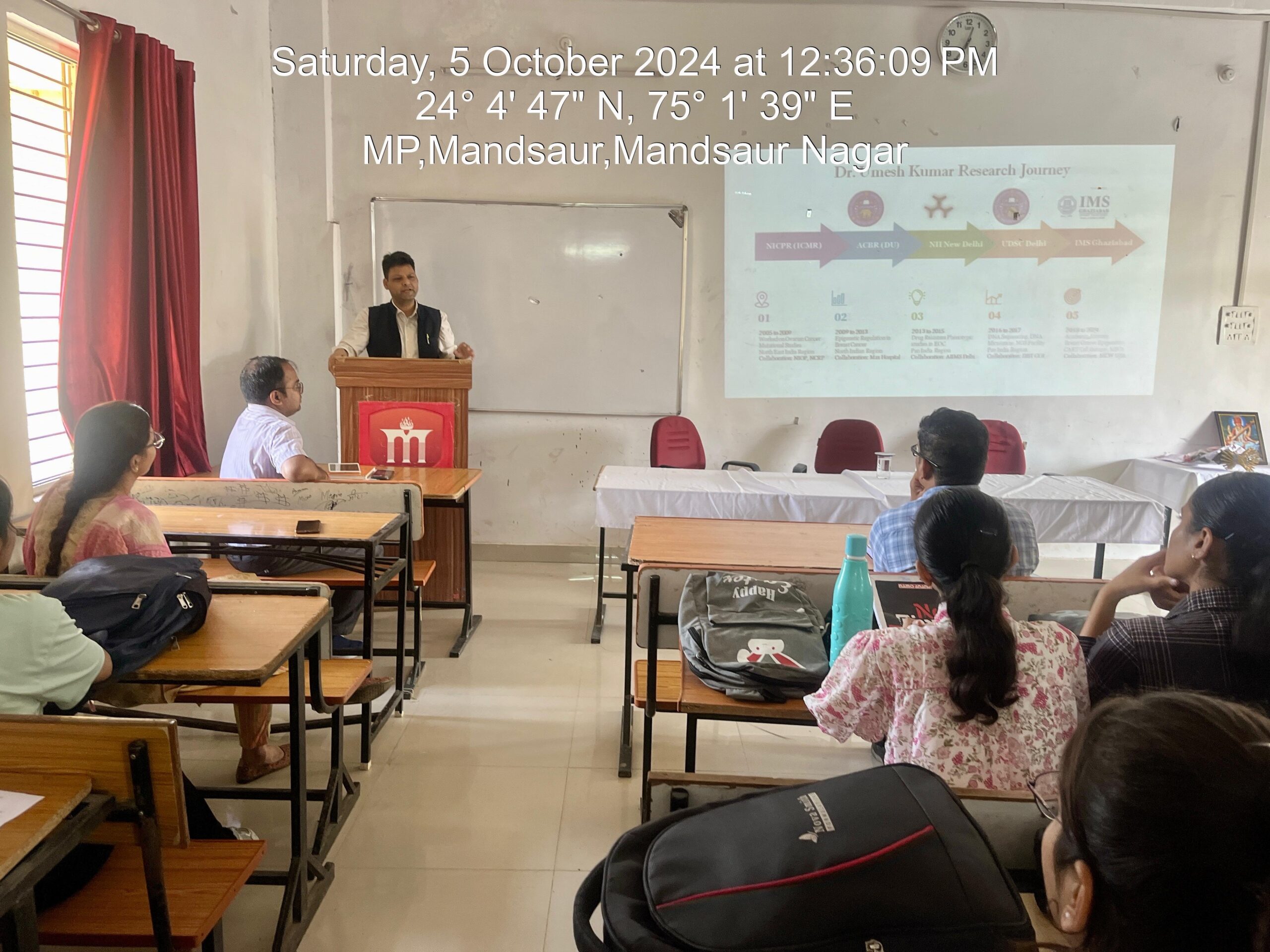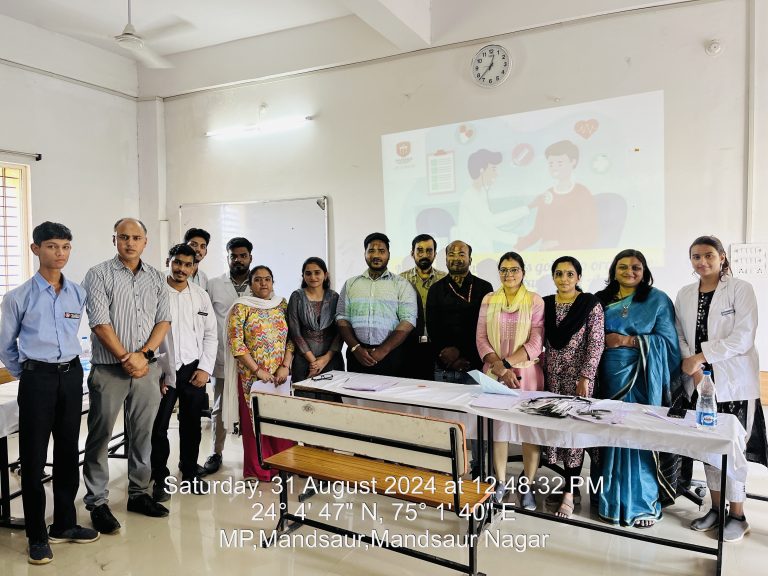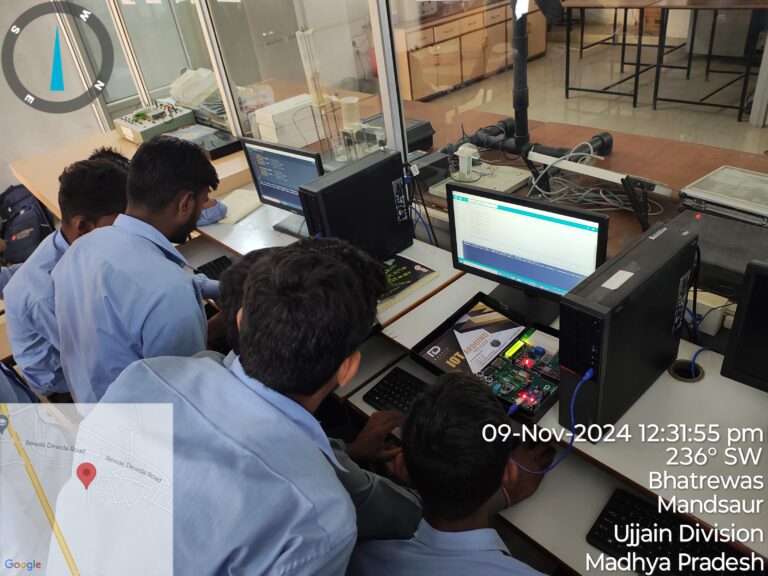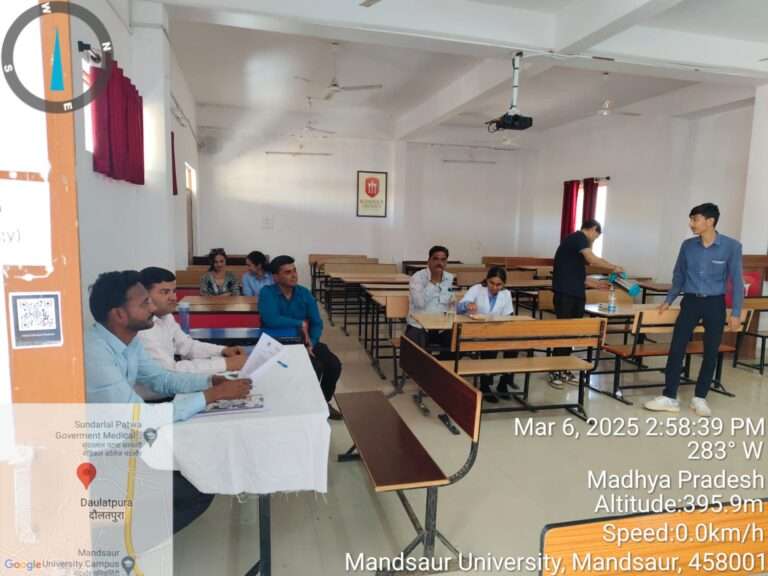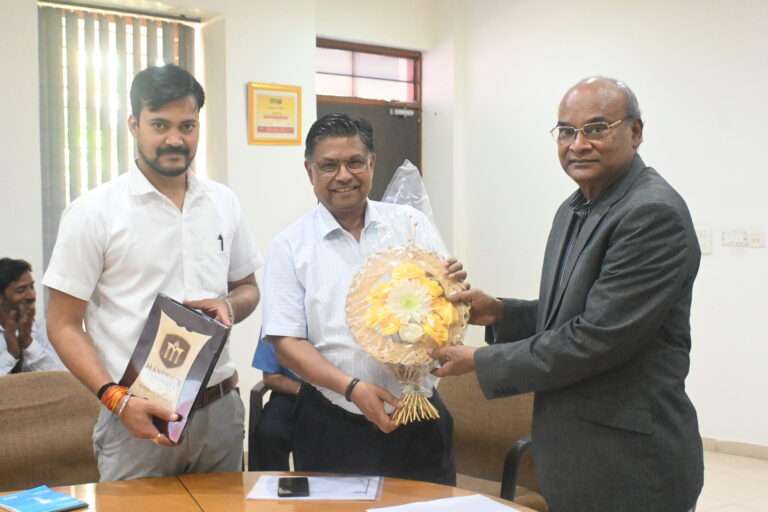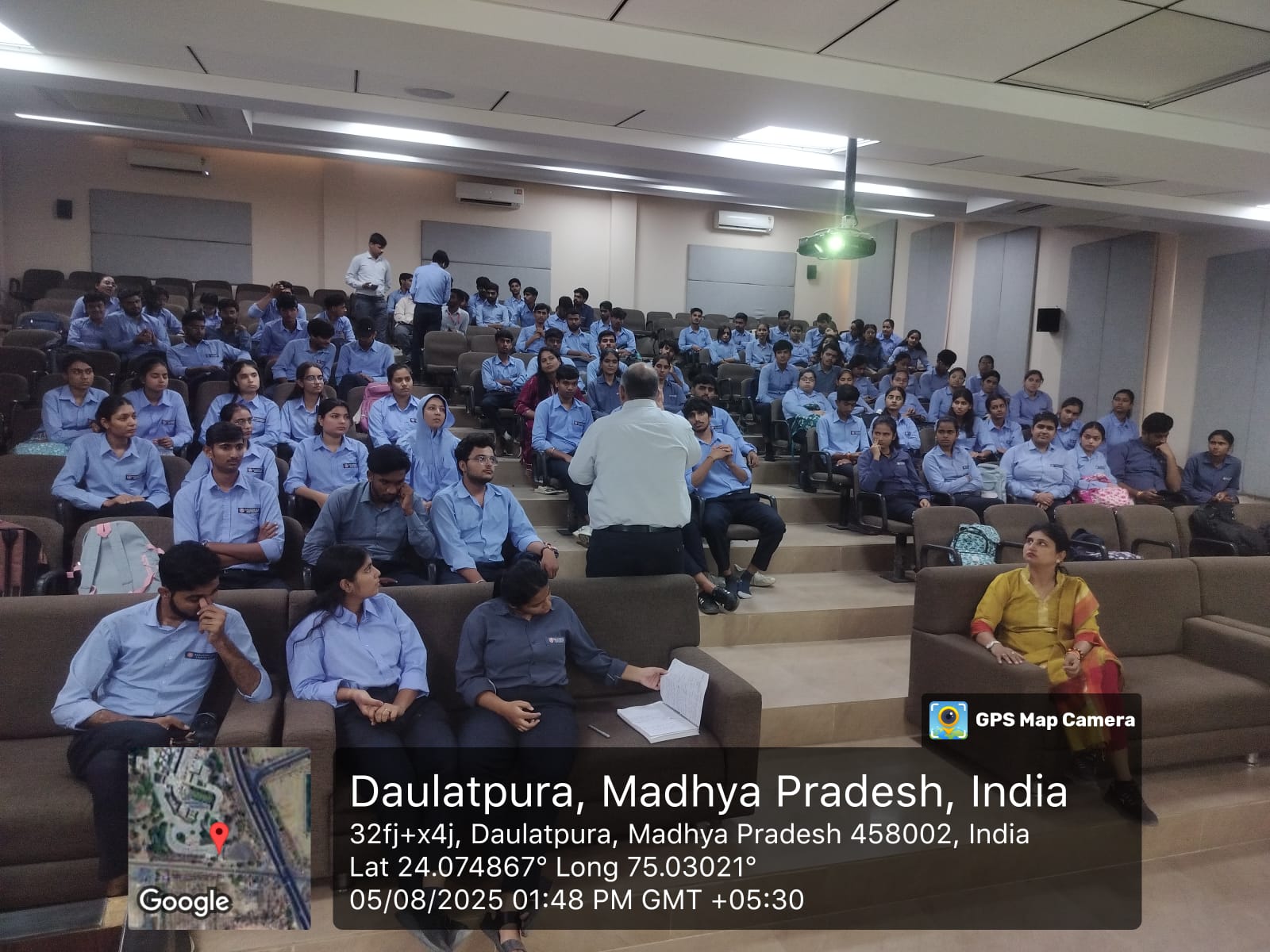One-day Seminar on “Gut Microbiomes and Its Link to mental Health: The Gut Brain Axis
Faculty of Life Sciences had organized one day’s seminar on “Gut Microbiomes and Its Link to mental Health: The Gut Brain Axis” for the students of B. Sc (Hons) and M.Sc. Biotechnology /Microbiology. The program was organized to make the students aware of the relationship between probiotics /gut microbes and mental health. The program was started with Saraswati Vandana, followed by the welcome address by Mr. Yogendra Kumar Verma, Assistant Professor, Head, Faculty of Life Sciences and welcoming to the Dean of Academic Affair Prof. (Dr.) Arunava Das Mandsaur university. In this seminar main agenda to make awareness about microbiota role in human health.
